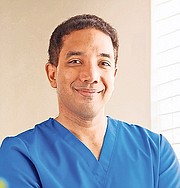By Dr Greggory Pinto
Bedwetting is a traumatic ordeal, too often endured in embarrassing silence by families. Nocturnal enuresis or bedwetting was regarded in one study as the third most traumatic event that a family can face.
There are two types of nocturnal enuresis, primary and secondary, whereby with primary nocturnal enuresis, bedwetting has always been an issue and secondary nocturnal enuresis requires a preceeding period of at least six months when the child was dry at night, but is now experiencing the problem.
Bedwetting negatively impacts a child’s self-esteem and confidence level.
Parents, grandparents and guardians are left feeling helpless and overwhelmed, having to change and wash wet pajamas, sheets, mattresses and struggling to comfort a devastated child.
Children and teenagers are hesitant to go on sleepovers or class trips as they fear the bedwetting will no longer be a secret.
It is a far too heavy burden for children/teenagers and parents to bear alone.
There is an associated emotional and financial toll on a family with frequent laundry washing, costly nighttime diapers and mattresses that may need to be replaced.
Bedwetting children/teenagers are often sleep deprived which can negatively affect their health, growth and academics.
Sadly there are far too many 16 and 17-year-olds that have been wetting the bed for more than ten years, every single night.
The positive message is that most cases of bedwetting can be successfully managed by an urologist.
Firstly, bedwetters are far from alone in their plight; 15 to 20 percent of five-year-olds and 5 to 10 percent of 10-year-olds and younger and two percent of all 15-year-olds suffer from bedwetting.
Boys are afflicted three times as often as girls. Any child older than five should not have bedwetting ignored and the consult of an urologist should be sought.
There are several misconceptions regarding bedwetting.
It is not a behavioral problem that should result in punishment of the child.
The causes of bedwetting are often a functional or more rarely an anatomical issue. The kidneys may produce large volumes of urine at night due to abnormally low levels of vasopressin, which acts to limit urine production.
The bladder might have a small capacity or is incapable of stretching with the filling of the bladder with urine.
Childhood diabetes must be ruled out as a part of the workup, as are urinary tract infections and sleep apnea.
Many bedwetters fail to wake up from the signals sent that the bladder is full.
Constipation is a common cause of nocturnal enuresis/bedwetting.
Spina bifida is a potential cause, in particular spina bifida occulta that may not lead to many other manifestations.
There is a genetic link associated with bedwetting as two-thirds of bedwetting children have one or both parents who were bedwetters in childhood.
Bedwetting can and should be treated.
Confidential, compassionate care is readily available.
Do not suffer any longer in silence.
Allow your child/teenager to regain his/her confidence/happiness and self-esteem by seeking urological treatment.
• Dr Greggory Pinto is a Bahamian urologist who has trained in South Africa, Germany, France and India. He is a member of the European Association of Urologists. Dr. Pinto can be reached at Urology Care Bahamas at the Surgical Suite, Centreville Medical Centre, Collins Avenue and Sixth Terrace. Call 326-1929. Email: Welcome @urologycarebahamas.com. Visit: www.urologycarebahamas.com.





Comments
Use the comment form below to begin a discussion about this content.
Sign in to comment
OpenID